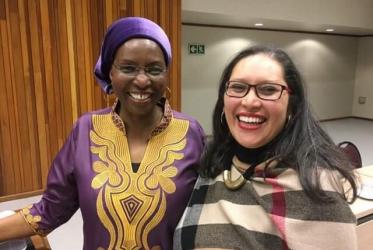Displaying 1 - 20 of 51
All pilgrim routes lead to COP24
11 December 2018
Pan African Women of Faith issue fervent Call to Action
20 November 2018
WCC moderator speaks at Justice Conference in Norway
09 November 2018
Worrying food shortages compel faith action
19 October 2018
GETI students plant trees, in service for greener future
07 March 2018
In Zambia, foreign investors complicate “economy of life”
06 September 2017








